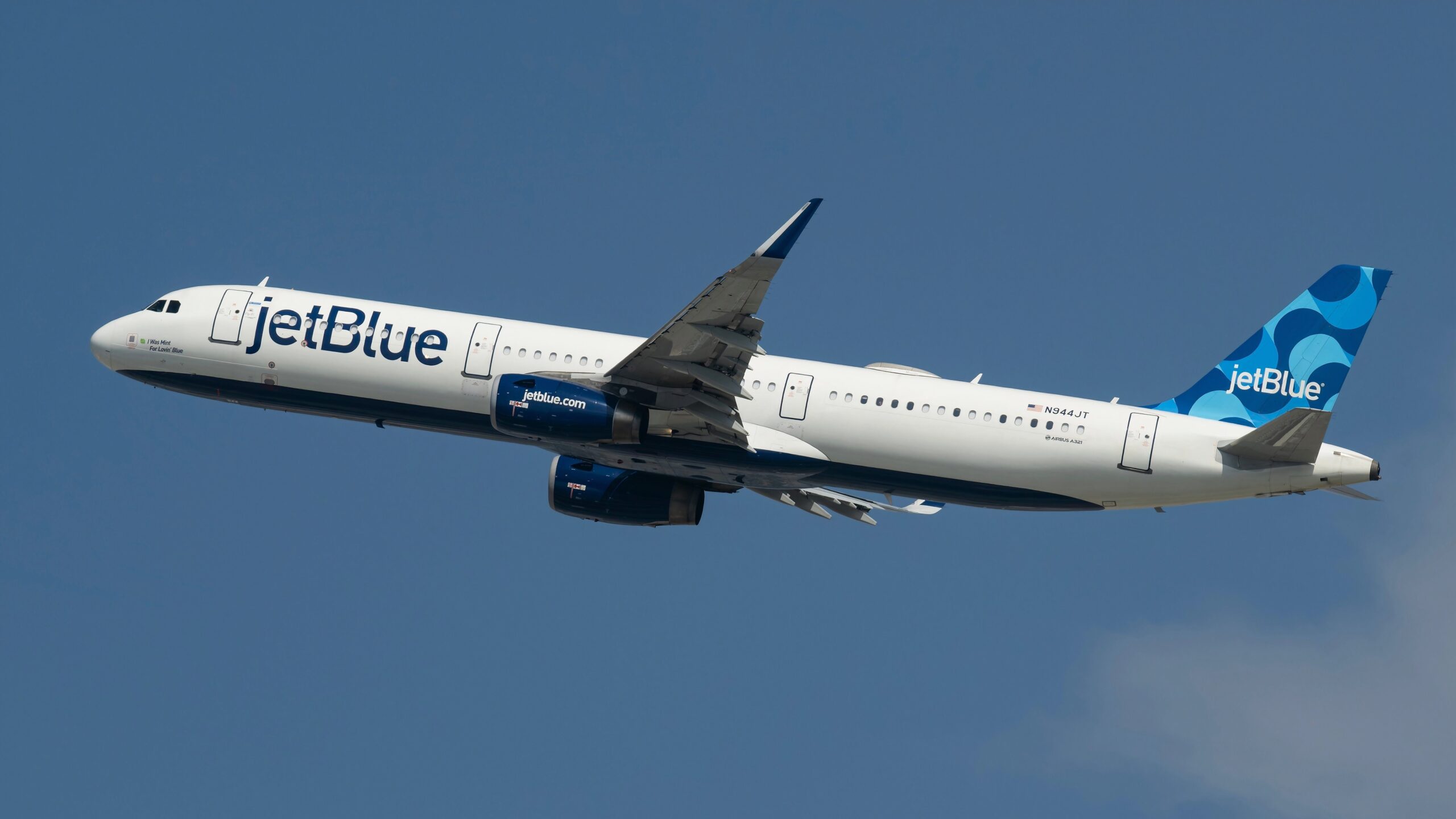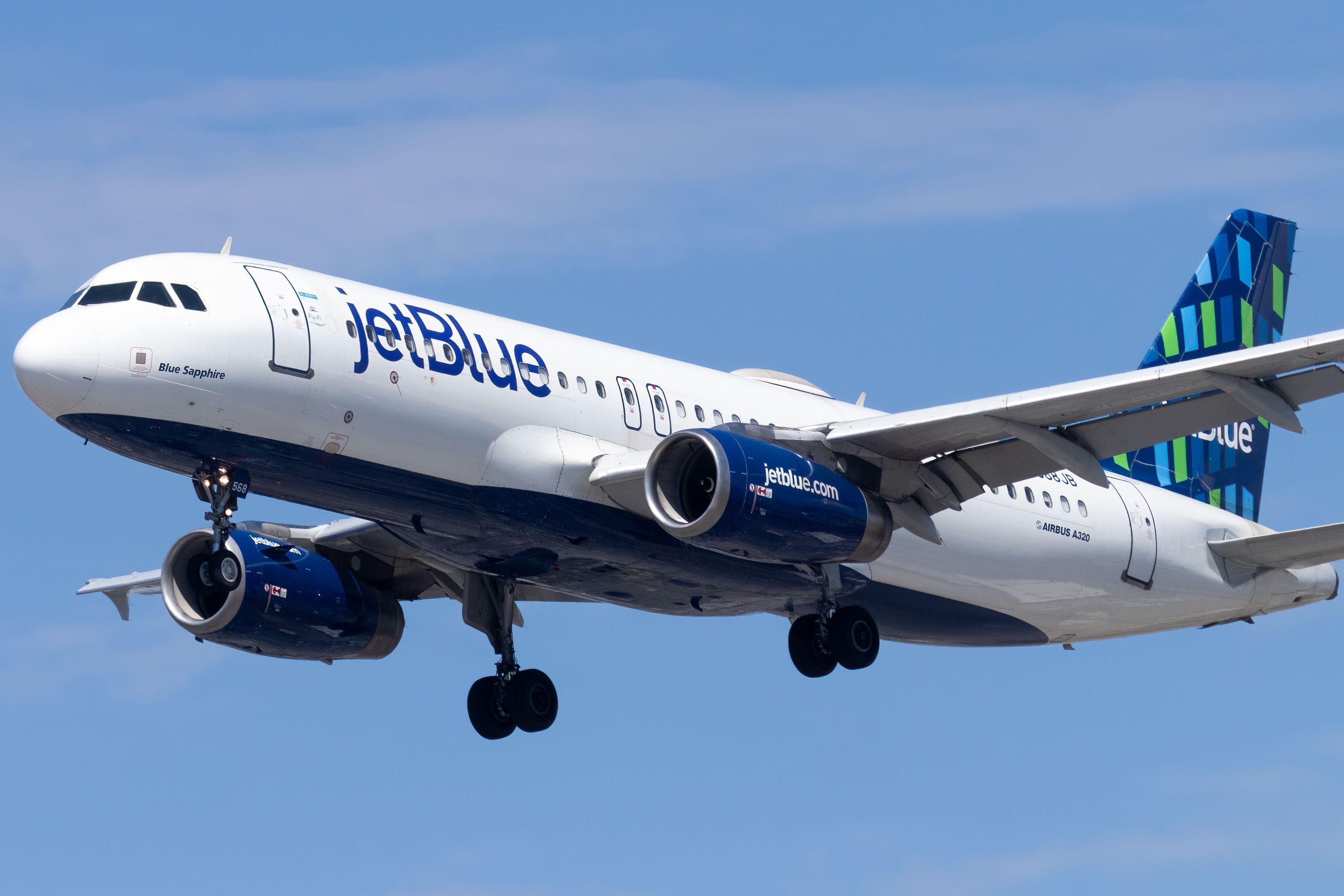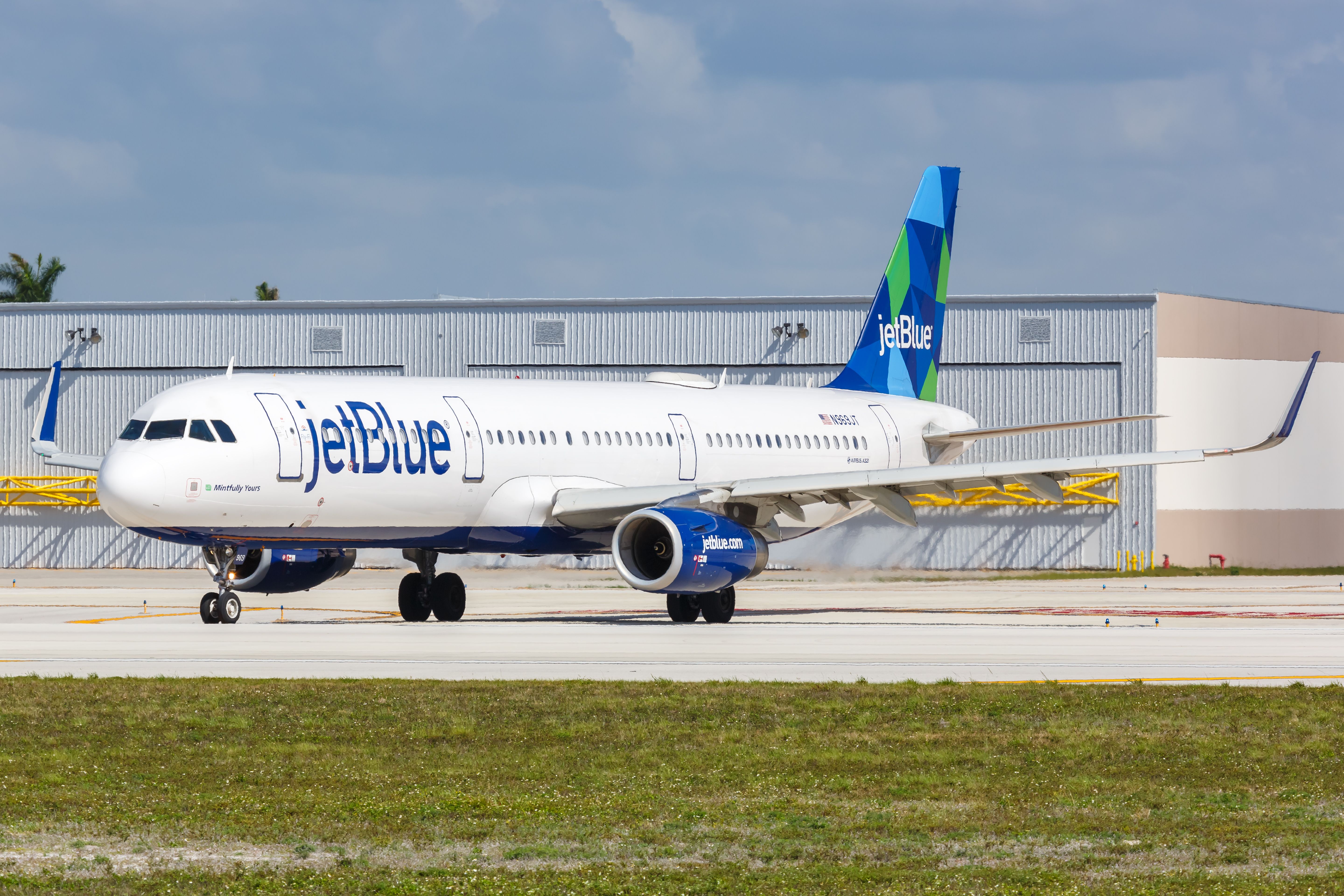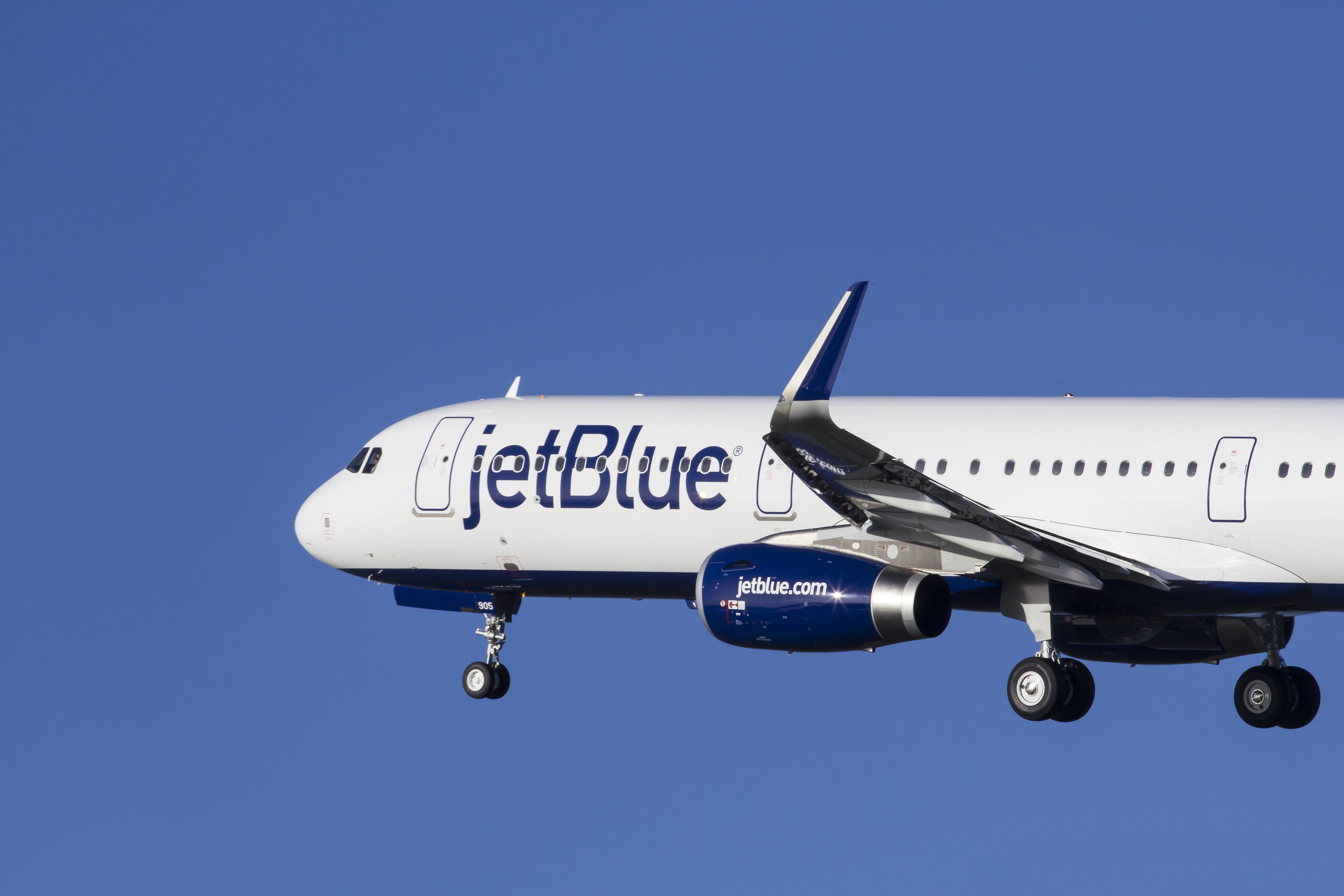Summary
- JetBlue’s stock has fallen over 75% due to pandemic woes and a failed merger but has announced a recent optimistic forecast.
- Stronger bookings during peak summer and outage-related bookings led to an 8.5% rise in JetBlue’s shares.
- Factors like a rise in Latin American bookings and cost reductions are contributing to JetBlue’s improved financial performance.
JetBlue Airways
has undoubtedly had a rough few years, with both the pandemic wreaking havoc on its operations and then the failed merger with Spirit scuttling its plans. Since the onset of the pandemic, JetBlue’s stock has fallen in value by over 75%, decreasing from a high watermark of $21.27 in early 2020 down to just over $5 in August 2024.
Despite these challenges and continually weak performance, JetBlue’s forecast is looking optimistic, with the carrier recently announcing an improved third-quarter earnings forecast. The airline has been quick to point out numerous factors that have influenced its new positive outlook, including stronger bookings during the peak summer travel season and technological outages affecting the operations of other carriers.
Photo: Wirestock Creators | Shutterstock
The markets have, unsurprisingly, reacted strongly to this new earnings forecast, with the Wall Street Journal reporting that JetBlue’s shares have risen by nearly 8.5% in the wake of this announcement. Let’s take a deeper look at the factors that have influenced JetBlue’s improved earnings forecast and what they could mean for the carrier going forward.
Previously, the carrier had forecasted a revenue drop of nearly 5% from 2023’s third-quarter numbers. However, given new data, the airline has shifted to forecast a 1% revenue increase over the previous year.
A lucky break that happened to have gone JetBlue’s way
In late July, a software update from cybersecurity firm CrowdStrike led to widespread operational challenges for both US airlines and US airports. The technological outage resulted in sweeping delays across the United States, with ripple effects going on for weeks.
Photo: Markus Mainka | Shutterstock
Fortunately enough for JetBlue, the airlines most affected by this technological outage were the legacy carriers American Airlines, Delta Air Lines, and United Airlines. As a result, JetBlue has indicated that it benefitted from increased bookings, a surge that occurred primarily in response to other airlines having consistent operational issues, according to reports from Reuters.
There have been some warnings from major market analysts that the benefits from this rise in bookings will be transitory, with specialists like CitiBank’s Stephen Trent arguing likewise. Nonetheless, the carrier did have the opportunity to expose new groups of passengers to its award-winning onboard products.
Other factors that have positively affected financial performance
Despite the seemingly transitory benefits of increased outage-related bookings, analysts have cited other factors that could have longer-term benefits. Specifically, JetBlue noted a sharp rise in bookings in Latin American markets, a region crucial to the carrier’s continued financial recovery.
Photo: Kunertus | Shutterstock
Furthermore, success in these sun markets during the summer months is particularly noteworthy, as this is typically a down season for such services. The carrier also indicated that it had benefited from the elimination of more unprofitable routes in the region.
The airline’s cost picture has also shifted positively in its favor. Previously, the airline had anticipated a 6-8% rise in unit costs (excluding fuel), numbers which have since dropped to 5-7%. Furthermore, fuel costs are expected to decline, as the price of jet fuel has flattened over the quarter, and JetBlue has consistently introduced more fuel-efficient Airbus aircraft.




